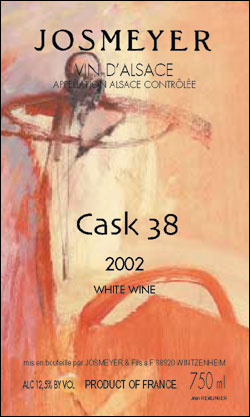It was bound to happen, but it still felt icky, reading that it had: In mid-December, the New York Times “Media Talk” column reported that National Public Radio, not satisfied with putting its logo on coffee cups, tote bags, and T-shirts, had contracted to issue its own line of wines. “Millions of people give support through donations [to NPR],” an executive was quoted as saying. “This is a way they can show their support in a fun way.”
More fun than coffee cups, anyway. This kind of prestige-pandering is endemic in the for-profit business world (Forbes magazine goes in for it), and most museum shops offer evidence that it’s taken deep root in the nonprofit world as well, but NPR’s pathetic attempt to pick up a little spare change by letting a marketing firm stick its logo on some midrange American wines somehow rings a particularly tinny note. Are we supposed to think Terry Gross and Daniel Schorr went shopping to pick out just the bottle to appeal to their so-sophisticated listeners? Phony marriages of convenience like this just make both partners seem more tawdry.
For an example of co-branding that both makes business sense and serves the consumer, look no farther than a program just announced by Seattle’s Restaurants Unlimited Inc. (RUI), which runs a string of more than 30 restaurants across the nation. Despite considerable diversity of style, RUI restaurants put a lot of emphasis on seafood, particularly salmon, and salmon, as experienced wine-lovers know, is not an easy match for wine.
Building on the success of a collaboration with the California sparkling-wine producer Gloria Ferrer, RUI Vice President Don Adams went looking for a wine producer that could provide the chain a reliable supply of salmon-friendly wine. He found the firm he was looking for in one of Alsace’s larger producers of quality wines, Domaine Josmeyer. With owner Jean Meyer, Adams tasted his way through a range of Josmeyer wines and came up with a blend of pinot blanc, pinot gris, and the native Alsatian grape auxerrois. Josmeyer custom-bottled the blend under the label Cask 38 Vin d’Alsace. It’s now available at all RUI restaurants, matched with a special appetizer lineup tweaked to complement it and be complemented by it: two pan-seared salmon dishes (one with a sweet-and-sour ginger-chili sauce, the other with sage-scented butternut risotto), plus a warm crab salad and mushroom-stuffed chicken preparations. A special effort was made to acquaint the company’s servers (all 1,200 of them) on the wine and its food propensities before going public with the promotion.
The RUI initiative is the polar opposite of the kind of empty prestige branding exemplified by NPR’s promotion. Anything but generic, it revels in the specificity that is the essence of wine sophistication: a careful matching of flavors to enhance the consumers’ pleasure and broaden their experience at the same time. A New Year’s toast to the company; may many follow in their footsteps.








